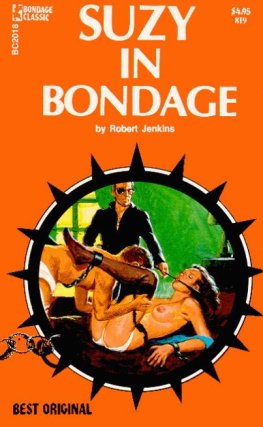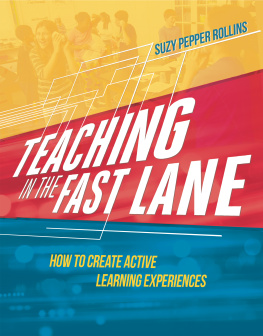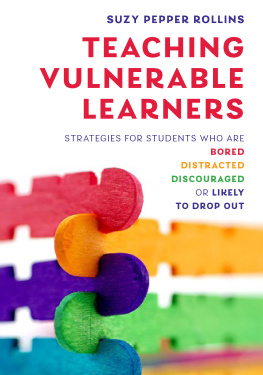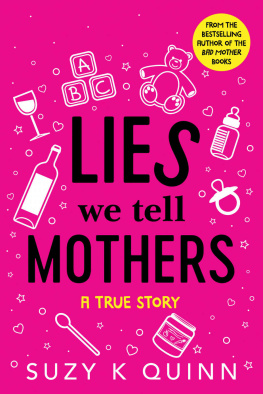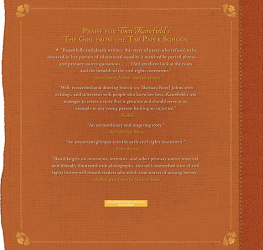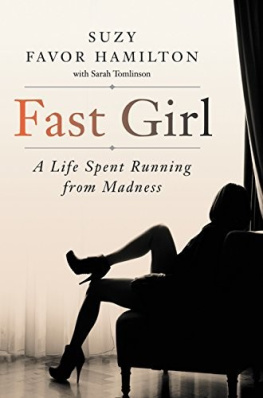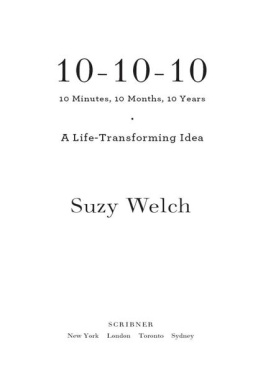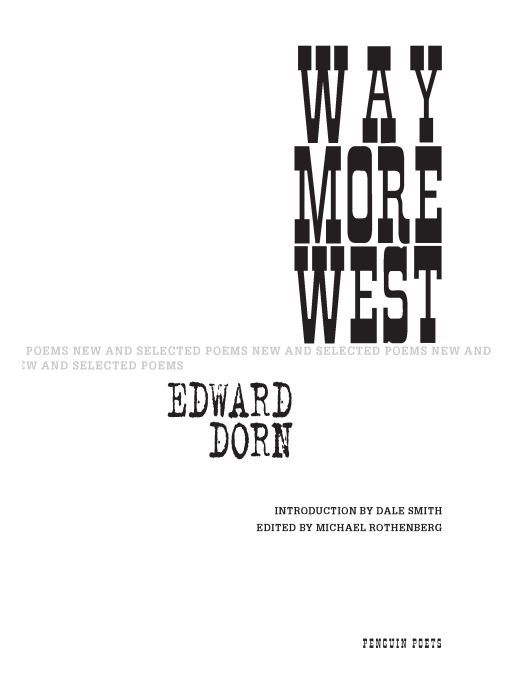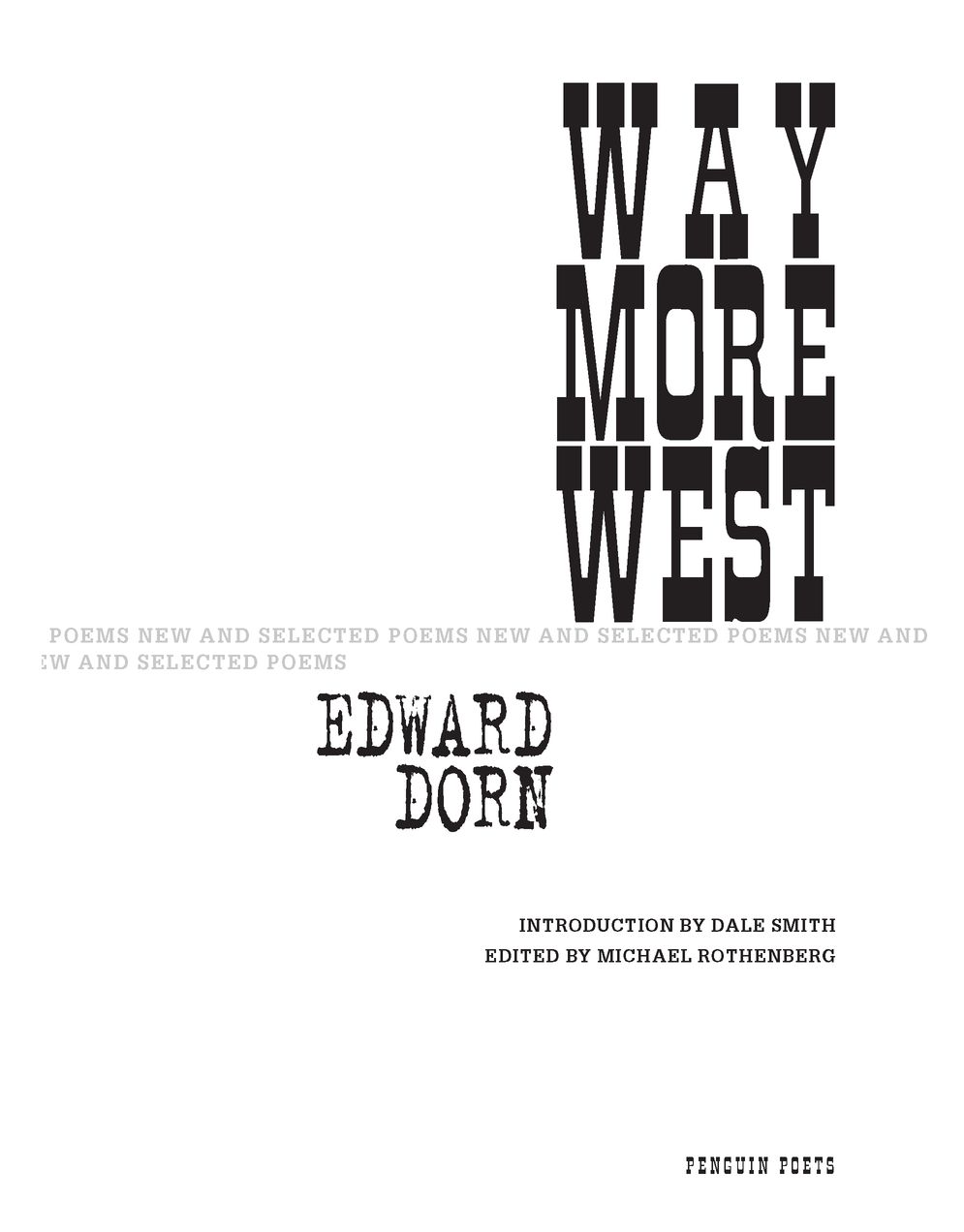Table of Contents
Acknowledgments to Maya Dorn, Terri Carrion, Jane Dalrymple-Hollo, Anselm
Hollo, Steve Fredman, Paul Slovak, and Yvonne Schofer, Humanities-English
bibliographer at the Memorial Library, University of Wisconsin-Madison, and
curator for the Sukov Collection of Little Magazines.
Special thanks to Jennifer Dunbar Dorn without whose editorial collaboration this collection would not have been possible.
Michael Rothenberg
EDWARD DORN: AN INTRODUCTION
No poet of the post-war era addressed the conflicting public interests of American democracy with the same rhetorical force as Edward Dorn. Whether he wrote with passionate lyricism or scathing satire, he always argued for the principles of locality against the self-interests often embedded in social and political abstractions. For him, more than most, poetry was written to reveal public situations many of us have experienced, such as July Fourth festivities, political election, and other civic incidents of custom. This public-mindedness influenced his work tremendously, and so the poems here, gathered from more than forty years of public engagement, reveal the praise and blame a poet may use to address his audience. He praised the weak and exploited laborers of the West and its native inhabitants while blasting with satirical invective those for whom power was a tool to extend self-interests. He also made himself accountable to his experience of the American West, relating it through his public and private uses of the poem.
Dorn grew up in the Midwest, a child of the Great Depression. The spirit of the small town and the farming communities rooted around it helped form his character. That world is at stake in early poems like Are They Dancing, The Air of June Sings, and Sousa. He acknowledges with sympathy his Time Wanderers and the forgotten places where the summer dresses of girls once blew. In the lyric sweetness of these poems, howeverthe belief, the relief / of Sunday occasionhe sees the grim conditions of the deprived. He registers the economic and social forces that are thrust on people, like it or not, without slipping into the mind-killing error of description. He does not offer solutions for poverty; he does not seek retribution for offenders of public faith. Instead he makes poetry that speaks through the present, praising those people who are rooted to the particulars of their experience, such as his own forebears who owned a nice clapboard house during the intensity of the depression. His restless self-scrutiny extends an ethos in this early writing of insight and trepidation for the West he beheld:
Yes, at moments I did waste
our lives, giving way
foolishly to public thoughts,
large populations.
Are we needed? On this mountain
or in this little spud town in the valley
or along this highway, you held
your eyes on getting us there, repeatedly
where?
The concern for place and public thoughts gives these early poems a tension that will eventually find resolution in the great epic Gunslinger. What makes this early work significant, however, is a commitment to the New American writing of the 1960s, where social interrogation and self-scrutiny were related through a renewed lyric sensitivity. During this time, LeRoi Joness Totem Press published The Newly Fallen. Other books from that pivotal decade of social confrontation include Hands Up, Geography, and The North Atlantic Turbine.
Prior to this prolific period of early writing, Dorn had begun attending Black Mountain College in North Carolina, where he studied with Charles Olson, Robert Creeley, and Robert Duncan. In A Bibliography on America for Ed Dorn, Olson outlined a course of study that would occupy Dorns attention. Besides figures of literary modernism, Olson suggested readings from the philosophy of Alfred North Whitehead, the cultural geography of Carl Sauer, and the historical studies of the American West by Bernard DeVoto and Frederick Merk. By shifting stress from literature to the intersecting vectors of historical and geographic fact, Olson insisted, it is not how much one knows but in what field of context it is retained. Dorns application of this bibliography led him to use the poem as a tool for discovery and judgment that is not based on aesthetic principles but on the organization of a field. In The Problem of the Poem For My Daughter, Left Unsolved, he notes how the oblivious process / of a brutal economic calculus shifts his attention from superficial... quality in other poems. He discusses this notion of a field:
In the chronically vast complex
explanation, a field true,
but a field
no field hand knows
beyond the produce of it
on some citizens land....
The measure of his field against that of the field hand shows a tenuous link between poet and laborer. Dorn seeks a more permanent change in the process of how we think about the places we inhabit, and through the agency of the poem he arrives at a scathing list of the genetic and technological forces that leave a man, / in that framed condition / of some totally onanized culture.
Gunslinger marks Dorns radical departure from lyric to laughteran unavoidable release from the shock of the actual. Its epic narrative makes a metaphysical riot of Nixon-era public dialogue. While the poem focuses on the internal compositions and extensions of psychic forces at work behind American social life, it is necessary to remember the intense turmoil of these years of war. The Elizabethan ear Robert Creeley admired in Dorns early writing now tuned in on comic books, Westerns, drug slang, and slapstick to relate the more serious political and philosophical orientations of the West. This road trip epic stars a number of characters such as the transfigured I (There will be some along our way / to claim I stinks), the Gunslinger of impeccable personal smoothness, Dr. Flamboyant, and The Stoned Horse who rolls bomber joints. Gunslinger is an ironic and complex work that integrates humor and puns into its pre-Socratic revision of the Western psyche. As Michael Davidson has noted, Dorns Gunslinger is a problematic blend of existential outlaw, robber baron, and metaphysician, and through him Dorns view ranges over the entire industrialized world as a succession of replaceable parts in what he calls the cultural exchange. Conversations among key characters such as Lil and Kool Everything are often comedic and evasive in the poems strategy of deflating the high tone of traditional epic. This is, however, a highly rhetorical work, with staged conversations and deliberations as the Gunslinger and his gang journey toward Four Corners, the geographic intersection where four Western states meet. Here, as in earlier poems, Dorn works against the progressive urgency of explanation:
Questioner, you got some strange
obsessions, you want to know
what something means after youve
seen it, after youve been there
or were you out during
That time? No.
And you want some reason.
How fast are you
by the way? No local offense
asking that is there?
No.
The distinctions here are crucial to the underriding arguments of the book that suggest knowledge cannot be dumped into the brain as if it were some kind of container. Intent and instantaneous perceptions of experience create the only meaning we need. The time lag brought on by reflection and discursive language get in the way of speech, words, and actions. To get to this, I (secretary to Parmenides) is Dorns agent of change. After containment in a vat of LSD, I emerges transformed as a kind of pre-Socratic new man, and hes got an answer for any still in wait of one:


